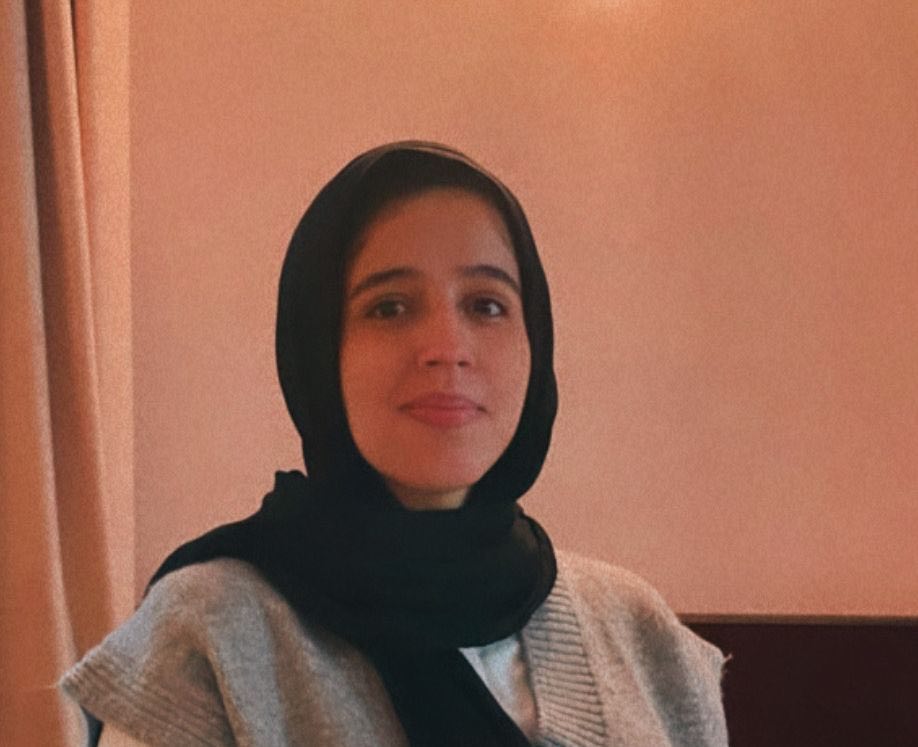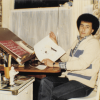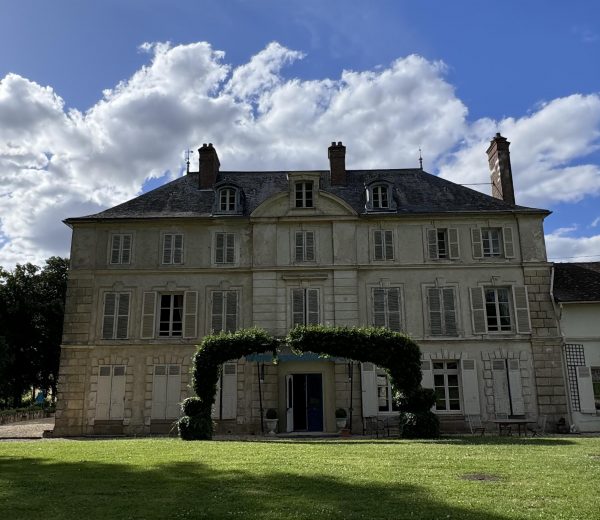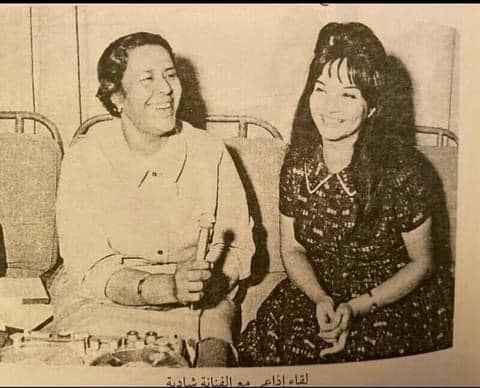
Despite the expansion of social media among individuals after the spread of smartphones in most parts of the world, radio remains the most accessible media available to people at ease, and at the lowest cost. The first radio station in Libya was established in 1957 when three stations were launched in Tripoli, Benghazi, and Al-Bayda. The voice of its broadcasters announced, “Here is the United Kingdom of Libya Radio”. Affiliated with the Ministry of Communications. Before transferring the affiliation to the Ministry of News and Guidance in 1960.
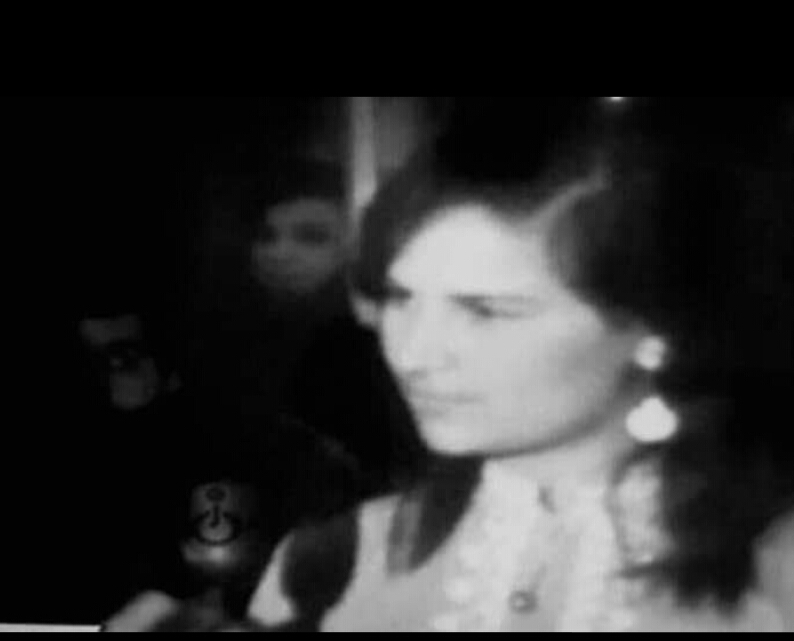
In this article, I translated the work of Mr. Hassan A-Salheen Bsekri, who worked as the head of the Studios Department and External Transport at the Radio and Television Department in Benghazi. He has been sharing posts linked to the history of radio in Libya and the cultural scene during the kingdom period and after the coup d’etat by Gaddafi.
”Fields of Culture” public group on Facebook shared a post about this article. The group publishes information and pictures about Libya’s past and present and I have taken the permission to translate the post to English.
1- Hamida Bin Amer
The first female voice that was first launched on-air in Libya came from the Benghazi radio station in 1955. It was the voice of “Hamida bin Amer” who presented the Women’s Corner. During that period, the Benghazi radio station, affiliated with the British Embassy.
2- Khadija Al-Jahmi
“Khadija al-Jahmi”, the first broadcaster in Libya, was on the same radio in 1956. Prior to the establishment of the Libyan radio in July 1957. Khadija al-Jahmi worked in it from its inauguration until she moved to the Women’s Magazine affiliated to the Publications Department.
After that, she founded Al-Amal magazine for children. This was in collaboration with Muhammad Al-Zawawi, Zahra Al-Fitouri, and Muhammad Abayya). Khadija Al-Jahmi has done many programs, including ”Pictures from the past – Ask your doctor and Stay up with us). The most important program she presented was ”Lights on Society” which lasted for 18 years From 1956 to 1973.
In Addition,
She wrote dozens of songs, including the most famous song (Noor Al-Ain) for the singer Mohamed Marshan. During her career, she authored many series on the radio, such as (If it was one of the first) and also composed plays such as (Al-Sir ”The Secret”). This is in addition to her journalistic writing in the Women’s magazine, including (Give Your Hand) and a collection of stories from 1966.
She was the first woman to read the news in Libya. This information is cited from her journal. It was published under the title (I am Khadija Al-Jahmi), and prepared by Asmaa Mustafa Al-Usta. Al-Jahmi passed away on August 11, 1996, and was buried in the cemetery of Sidi Munathir in Tripoli on August 12, 1996.
3- Hasna Bu-Khutwa
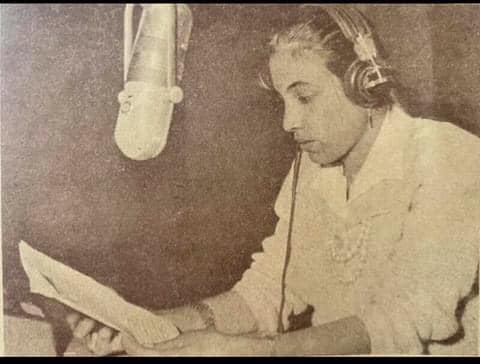
She worked mainly as a teacher but was a collaborator on the radio. She submitted her resignation from working in the radio after the transfer of her father, who was working in the oil corporation, after his transfer to Tripoli during the reign of Prime Minister Mohieddin Fekini.
4- Fatima Al-Allagi & Amina Al-Waddani
Fatima Al-Allagi worked on the Ras Obaidah radio station and left it. While (Amina Al-Wadani), an active broadcaster, was always seen with tapes in her hands all the time. She also worked on developing many programs for the radio station.
5- Fatima Al-Hawat
She was a collaborating broadcaster who mainly worked in the field of social affairs. During her career in social affairs, she was the director of a nursing home in Sidi Hussein. However, she resigned and then moved to Tripoli Radio.
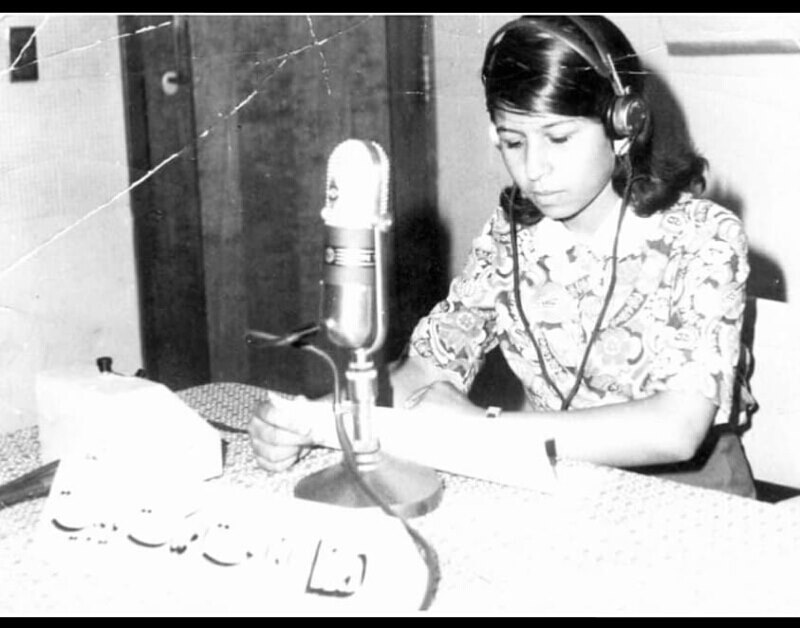
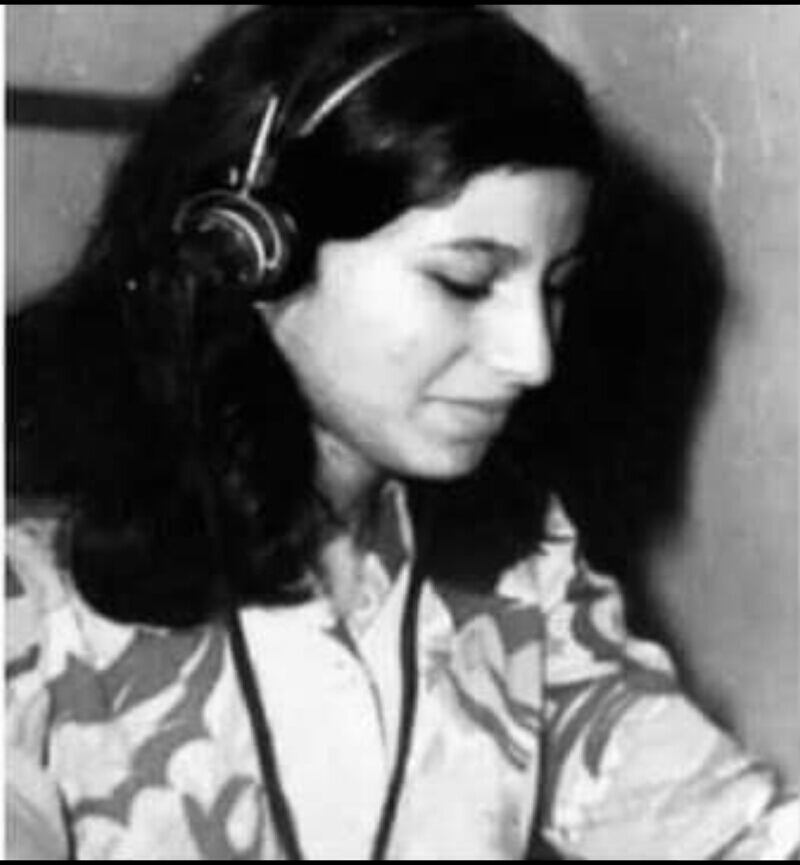
There are many leading names of Libyan women on the Radio. They contributed greatly to developing the radio scene in society and left a huge impact. Among them were Fatima Lyas (she was a collaborator on the radio and a teacher in the public sector). In addition, Fatima Youssef of Palestinian nationality, Fathia Al-Amami, and Fawzia Al-Ghazwani. Moreover, Naima Al-Ghazwani, Salma Al Hamri, Laila Asheim, Nabawiya Bin Sariti, Naima Shallak, and Aisha Al-Barghathi. Finally, Rabia Hamza, Ibtisam Buhamida, of Syrian nationality, and Amina Abrik.
Information source: Mr. Mohamed Salheen Albsikri. Link to the main post: ميادين الثقافة | مصدر الصور والمعلومات . | Facebook
